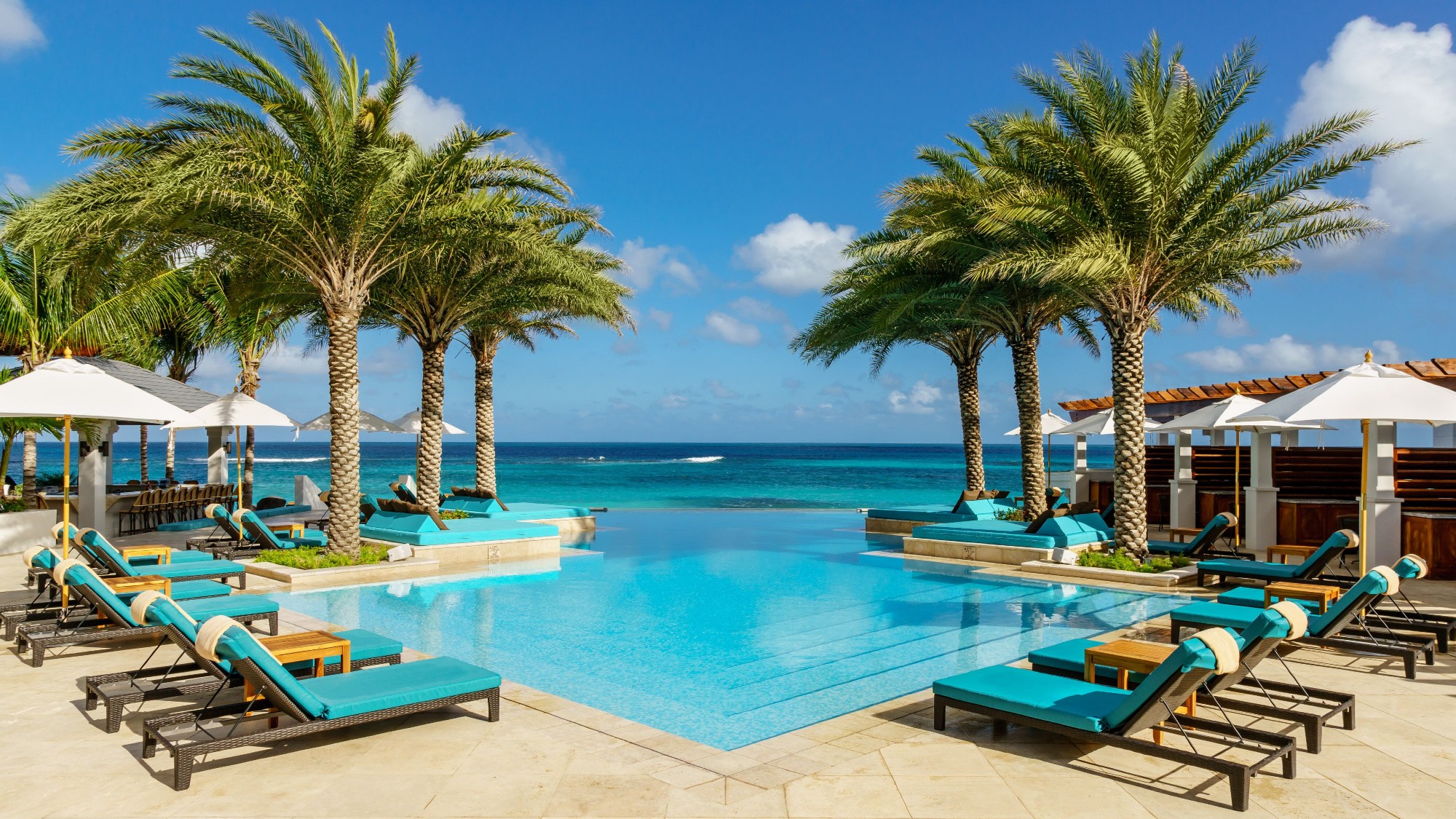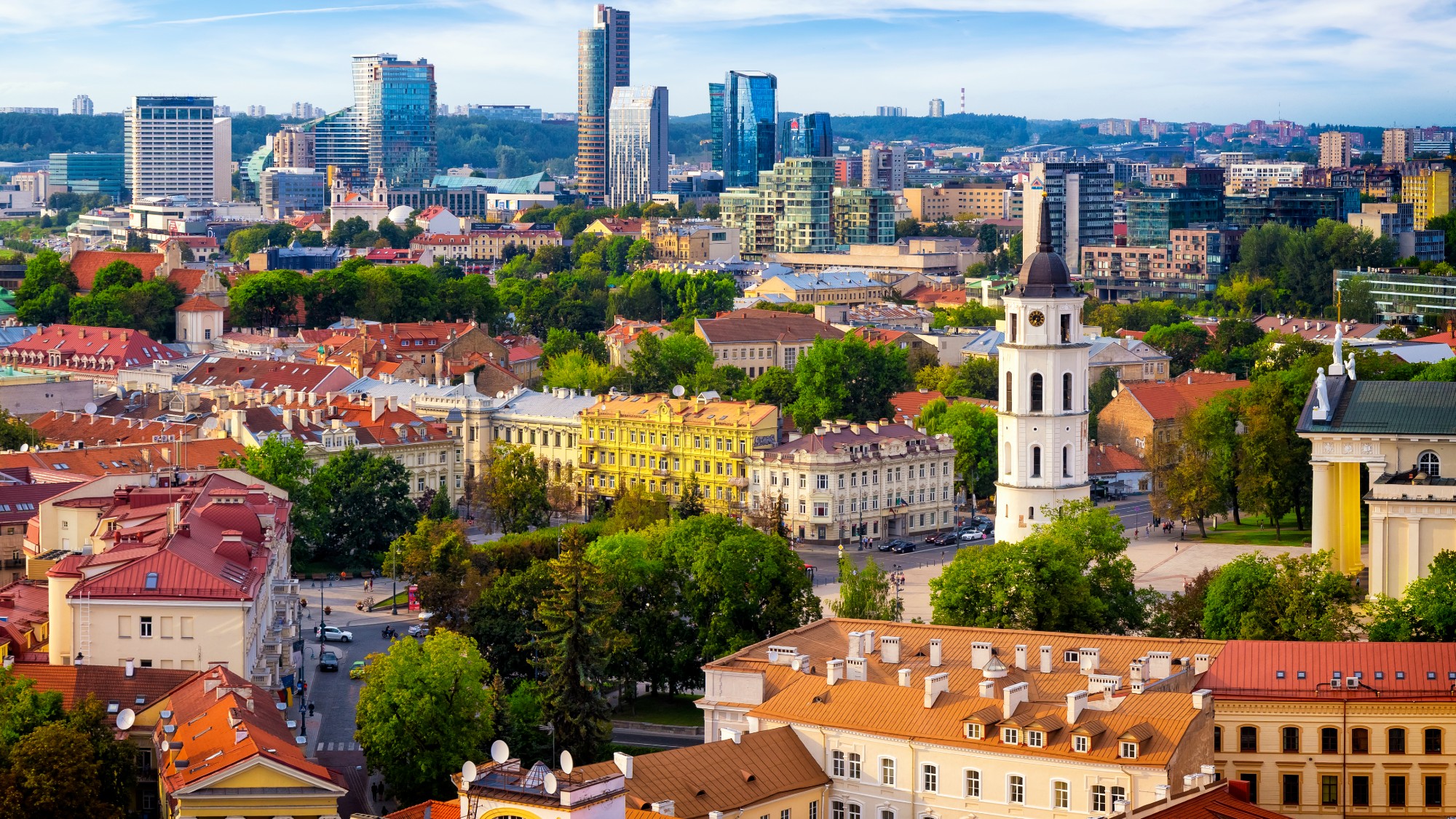2023: the year of overtourism backlash
People are traveling again … maybe too much


A free daily email with the biggest news stories of the day – and the best features from TheWeek.com
You are now subscribed
Your newsletter sign-up was successful
The pandemic forced people to embrace the hermit lifestyle. Then, in 2023, travel came back with a vengeance. The phenomenon was dubbed revenge travel, in which people reclaimed lost pandemic time by taking notably exotic and elaborate trips. But many destinations struggled to manage the heightened influx of tourists, and some governments actively took measures to limit the quantity of visitors. The lesson: Overtourism can be just as harmful as undertourism to a community, causing environmental destruction and pressure on local communities and resources.
More is not always merrier
The term "overtourism" is fairly new. It describes "too many people in one place at any given time," according to National Geographic. The exact number constituting "too many" varies from place to place, of course. "An accumulation of economic, social and environmental factors determine if and how numbers are creeping up," the outlet explained.
The problem with too many tourists is that the sheer volume of visitors can displace the local community but also turn the destination unpleasant for tourists themselves. According to Forbes, "a number of the most iconic destinations have become unlivable for local residents and overcrowded, unsafe and uncomfortable for visitors."
Many popular European destinations fell victim to exactly this. "Tourists are waiting more than two hours to visit the Acropolis in Athens. Taxi lines at Rome's main train station are running just as long," reported The Associated Press adding that "that crowds get backed up crossing bridges — even on weekdays." Accommodating visitors also compromises housing for local residents. "Renters are being evicted by landlords in favor of turning properties into holiday lets, and house prices are escalating as a result," explained National Geographic. "As visitors and rental properties outnumber local residents, communities are being lost."
The Week
Escape your echo chamber. Get the facts behind the news, plus analysis from multiple perspectives.

Sign up for The Week's Free Newsletters
From our morning news briefing to a weekly Good News Newsletter, get the best of The Week delivered directly to your inbox.
From our morning news briefing to a weekly Good News Newsletter, get the best of The Week delivered directly to your inbox.
Along with crowding destinations, overtourism can damage the environment. Traveling on a long-haul flight requires the use of fossil fuels and releases emissions. Once tourists arrive at their destination, there is more likely to be trash and debris left behind when they depart which can pollute landscapes and waterways. "So many people flying into the same place degrades local ecosystems and natural defenses against the effects of climate change," noted Energy Monitor. Coral reefs, for example, have been degrading faster because more people are coming into contact with them.
For destinations recovering from disasters, like Maui, Hawaii, overtourism complicates the process of grieving and rebuilding. Hawaiian residents have been vocal in opposing tourism in general but especially following the devastating wildfires. The island has also been under a water conservation notice because of "hotels and resorts taking up [the residents'] share of the water," ABC News reported. As Tobias Jones wrote in The Guardian, "Sites are nothing more than the backdrop for our selfies because we go places not to learn from them, but just to post and boast to others that we’ve been there."
Closing the gates
The growing number of tourists in various locales has caused some governments to take matters into their own hands, implementing methods to cap the number of visitors. A few, like Amsterdam and Venice, banned cruise ships, citing the cruisers' environmental impact. In addition, starting in 2024, Amsterdam will also implement new housing rules, "which aim to increase the housing supply for students, teachers and trainee police officers," Time Out reported. The endgame: more resources for locals, not just for visitors.
Fines and taxes are one of the most common methods for keeping visitors out. Venice implemented a number of fines as well as a day-tripper fee, and Japan is planning on creating a tourist tax and raising transportation costs. In doing so, the country is taking responsibility for "preserving nature, history and culture and passing them on to the next generations," Shunji Mukai, an official of Japan's Miyajima Island planning and coordination division, told Euronews. Other places like the Acropolis in Greece and Machu Picchu in Peru are placing caps on the number of daily visitors.
A free daily email with the biggest news stories of the day – and the best features from TheWeek.com
Overtourism tends to be an especially acute problem during the busy seasons, like summer. Encouraging travel during other times of the year could ease the strain on some of these destinations. Also, "encouraging more sustainable travel and finding solutions to reduce friction between residents and tourists," could reduce the impact on both the environment and communities, according to National Geographic, along with "promoting alternative, less-visited spots."
Devika Rao has worked as a staff writer at The Week since 2022, covering science, the environment, climate and business. She previously worked as a policy associate for a nonprofit organization advocating for environmental action from a business perspective.
-
 The EU’s war on fast fashion
The EU’s war on fast fashionIn the Spotlight Bloc launches investigation into Shein over sale of weapons and ‘childlike’ sex dolls, alongside efforts to tax e-commerce giants and combat textile waste
-
 How to Get to Heaven from Belfast: a ‘highly entertaining ride’
How to Get to Heaven from Belfast: a ‘highly entertaining ride’The Week Recommends Mystery-comedy from the creator of Derry Girls should be ‘your new binge-watch’
-
 The 8 best TV shows of the 1960s
The 8 best TV shows of the 1960sThe standout shows of this decade take viewers from outer space to the Wild West
-
 A thrilling foodie city in northern Japan
A thrilling foodie city in northern JapanThe Week Recommends The food scene here is ‘unspoilt’ and ‘fun’
-
 Samurai: a ‘blockbuster’ display of Japan’s legendary warriors
Samurai: a ‘blockbuster’ display of Japan’s legendary warriorsThe Week Recommends British Museum show offers a ‘scintillating journey’ through ‘a world of gore, power and artistic beauty’
-
 Caribbean resorts that call for serious rest and relaxation
Caribbean resorts that call for serious rest and relaxationThe Week Recommends Serenity is a flight away
-
 Quiet divorce is sneaking up on older couples
Quiet divorce is sneaking up on older couplesThe explainer Checking out; not blowing up
-
 Admin night: the TikTok trend turning paperwork into a party
Admin night: the TikTok trend turning paperwork into a partyThe Explainer Grab your friends and make a night of tackling the most boring tasks
-
 Exploring Vilnius, the green-minded Lithuanian capital with endless festivals, vibrant history and a whole lot of pink soup
Exploring Vilnius, the green-minded Lithuanian capital with endless festivals, vibrant history and a whole lot of pink soupThe Week Recommends The city offers the best of a European capital
-
 Dive right into these 8 underwater adventures
Dive right into these 8 underwater adventuresThe Week Recommends It’s time to make a splash
-
 Hawai‘i: a kingdom crossing oceans – a ‘thrilling’ exhibition
Hawai‘i: a kingdom crossing oceans – a ‘thrilling’ exhibitionThe Week Recommends With some items on display for the first time since 1900, the British Museum’s new show gives voice to a ‘fascinating, rarely heard culture’
